Controls And Notes
the control system on the aircraft are rather basic, but have a few kinks to be aware of.
for starters, the trim is continuous (and rather slow), and does not have trim slider gradients- only 100% upwards or down.
the wing sweep only has an automatic mode, as i put manual off due to the coding requirements.
the speedbrake is operated by ag 6, which is important to be used for any landing.
the hook is dropped by ag 5.
the dot in the center of the hud glass is a testing device, though is able to aid in gun aiming. move the vtol slider 3/5 up to have an accurate fix on the gun as its canted 3 degrees upward.
flaps are operated by the vtol slider. they come down slow and pitch the airplane downwards slightly.
the fuel load on the airplane is only 4,000 pounds (as opposed to a maximum internal load of 16,200 lb.), which was for the two airshow videos I put out a month ago. with this you can put the aircraft in a vertical climb even with the thrust deficit of the tf30 engine.
features that did not make it to this unfinished build are: cadc maneuvering flaps, aics, dlc, afcs sas on all 3 axes, manual sweep, compressor stall simulation, & proper launch bar functionality
Flying Characteristics
the cardboard tomcat is my attempt to make a realistic flying experience resembling that of the real aircraft. because of this, you may find some behaviors that may catch you off-guard.
the f14 tomcat a and b models, unlike other 4th generation us fighters, has an analog flight control system. at some points in the flight envelope you may find yourself in an awkward situation. here are some things to look out for to keep the tomcat happy in flight.
Roll Reversal
the biggest thing to look out for at slower speeds is roll reversal. at angles of attack above ~18 degrees, roll inputs reverse. to counter this, simply use rudder in the direction you want to roll. it is important to get into the habit of this, as failing to recognize the signs can lead to an unrecoverable nose dive or flight departure.
Wing Break
when maneuvering the plane at high speed, it is important to keep in mind the g-load put on the structure- the wing spars will fail at roughly 9-13 g turns. this can be caused by yanking back on the stick, as well as sustained high g turns.
Trimming
because the airplanes controls are analog, keeping it level at certain speeds will require trimming. due to the nature of the trim system, its best to find a certain speed to fly, then add trim. constant trim changes would require a considerable amount of attention from the pilot, so rather keep the airplane level by manual pitch inputs.
General Tip(s)
the best tip i can give on flying the tomcat is to 'fly the cross'. this means do not mix pitch and roll inputs, which as detailed before may cause you to end up in an awkward situation with the airplane.
landing speed for this configuration is around 125-135 kias.
The Project
this build of the cardboard f14 is exactly as i left it two weeks ago when i decided to restart altogether. there are unused and unfinished variables i was planning to implement or replace old pre-1.11 code with, as well as the physical build being unfinished. you may find a few characteristics to be user unfriendly, though keep in mind this is a build that was in its testing & development phase.
the flight model, as it has been for some time, is a little unpolished and pretty unfinished, which I may come back and complete it to its full functionality as it was originally intended to have. as it is here, the basic kinematics of the aircraft are pretty close to what couldve been a final build. acceleration, speeds, turn rates, the whole flight envelope is modeled to some extent, though in a lot of areas is lacking.
after 10 months of on/off work on this im putting it to rest. its given me a lot of insight into the inner workings of the games physics & funky trees, and will likely serve in the future as a testing platform to aid in development in the newer tomcat build & mounted weapon systems. undoubtedly the lessons learned from this will aid a lot in tuning up the new tomcat build, as well as speeding up the entire process. the new build likely will not be eligible to be curated, as ive decided to abandon cardboard on long term builds and fully model the physical details of each surface. a lot of my saved cardboard builds have fallen victim to the very thing that got me to start building them in the first place, which is losing interest and shelfing them. at this point in time, ive figured out a sort of schedule that works well with a long term project like this- which is doing small builds in between progress to keep my mind fresh and motivated to work on these. it so far has worked and do expect more builds to come out every few months or so who really knows lol
Specifications
Spotlights
- QuiteInactiveWhiteBread 3.2 years ago
General Characteristics
- Successors 14 airplane(s) +84 bonus
- Created On Windows
- Wingspan 64.9ft (19.8m)
- Length 63.4ft (19.3m)
- Height 17.5ft (5.3m)
- Empty Weight 25,882lbs (11,739kg)
- Loaded Weight 44,697lbs (20,274kg)
Performance
- Power/Weight Ratio 9.394
- Wing Loading 25.1lbs/ft2 (122.7kg/m2)
- Wing Area 1,778.5ft2 (165.2m2)
- Drag Points 1034
Parts
- Number of Parts 966
- Control Surfaces 10
- Performance Cost 3,737

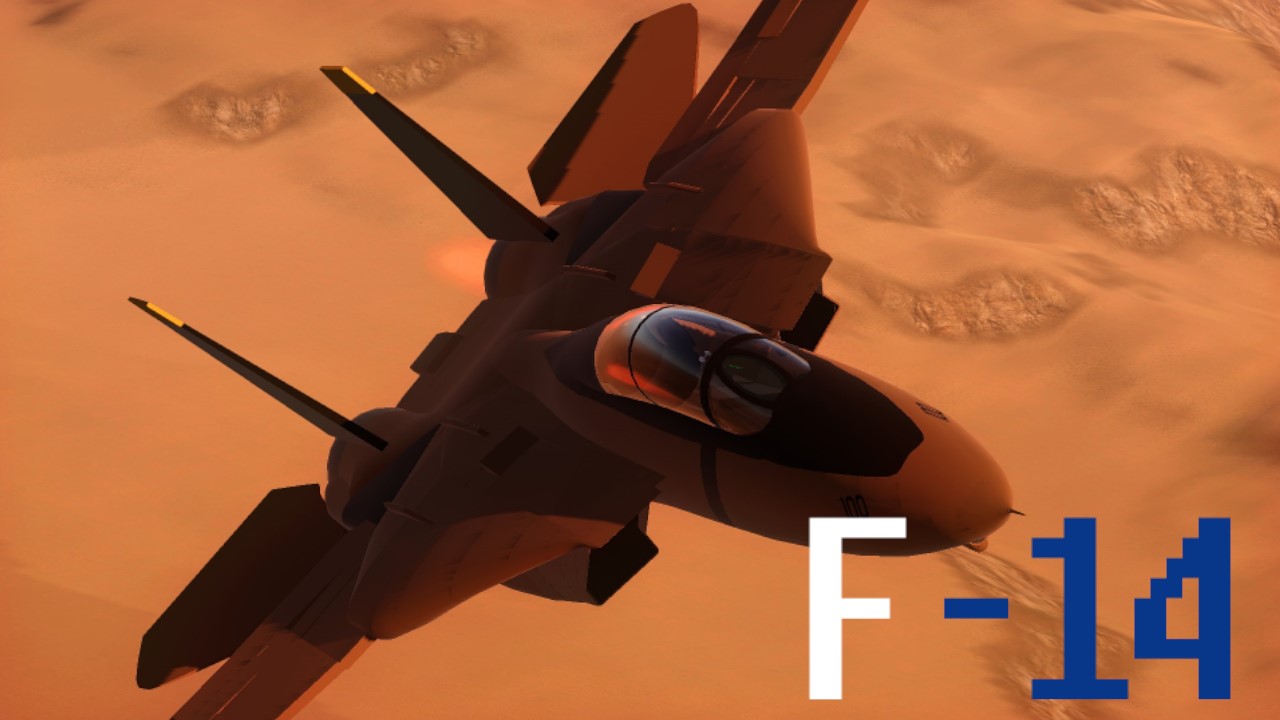
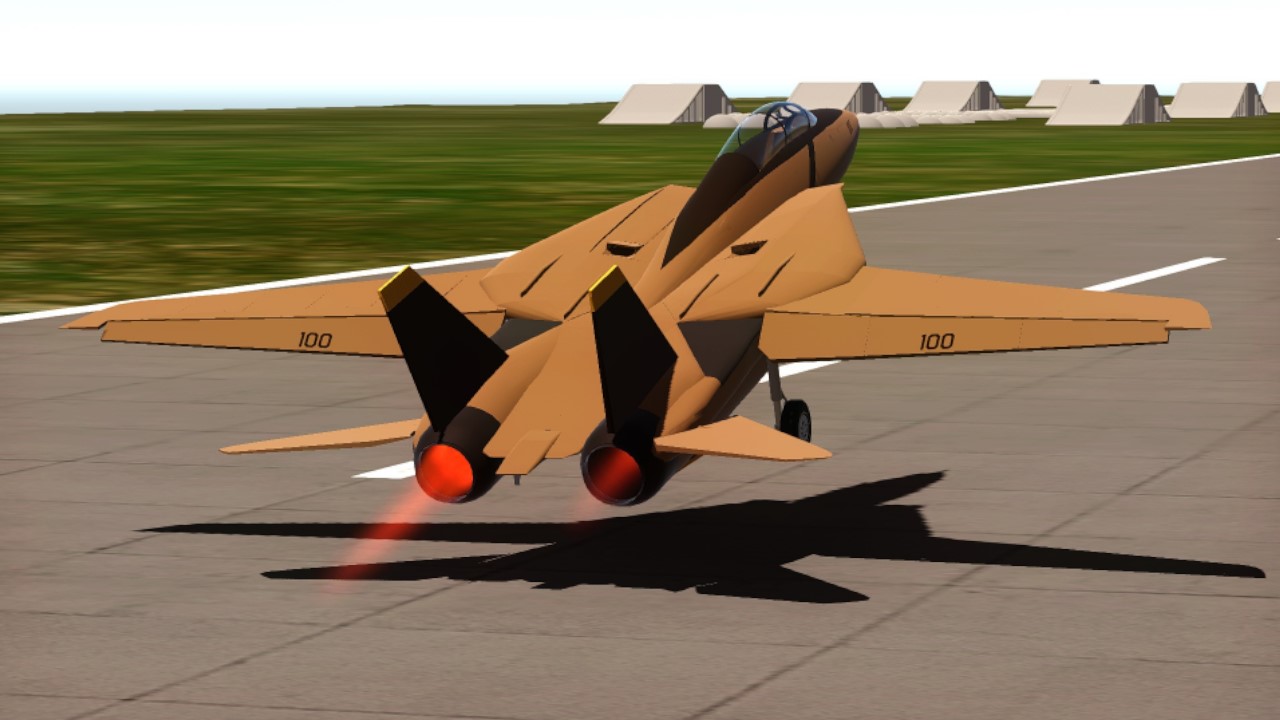
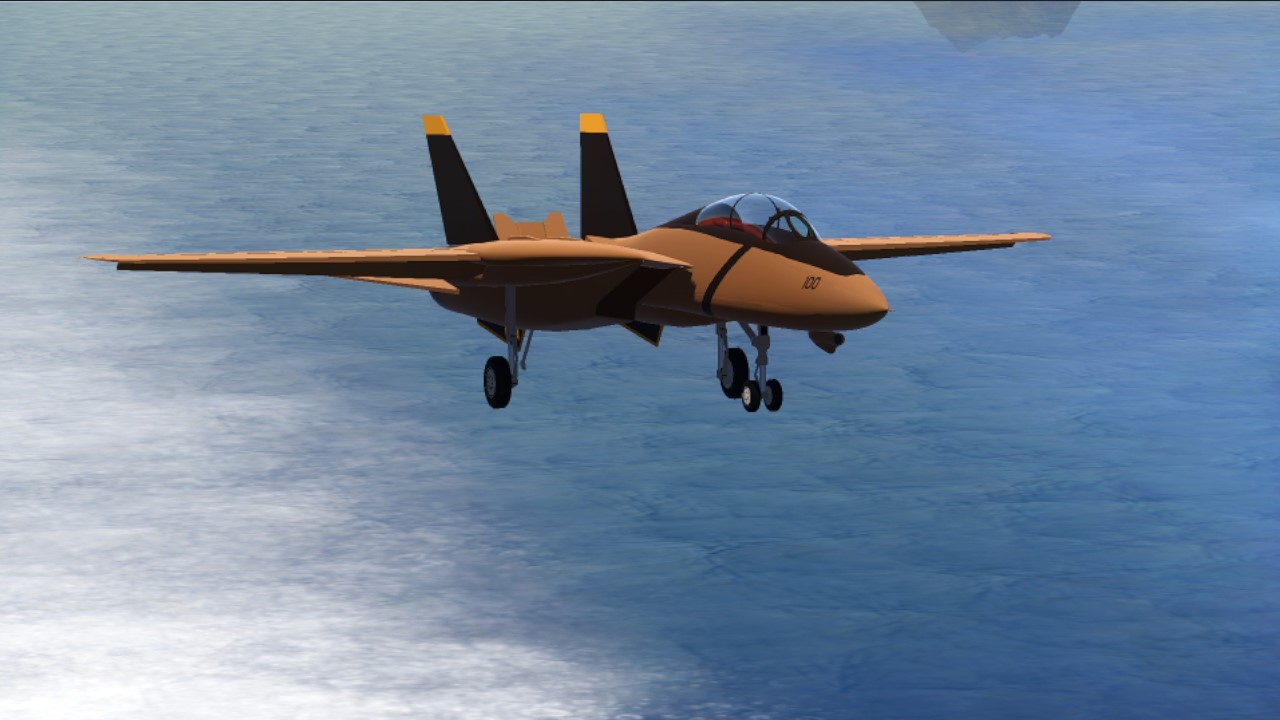
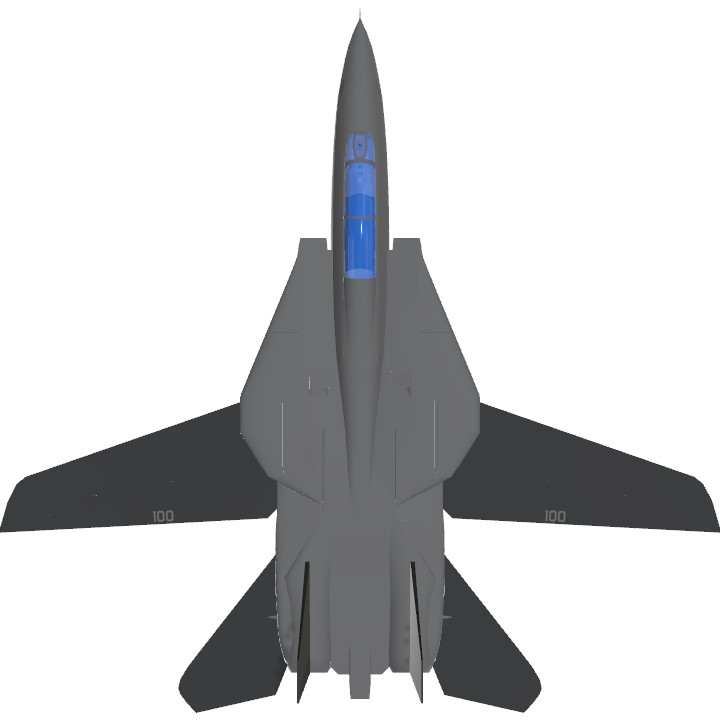
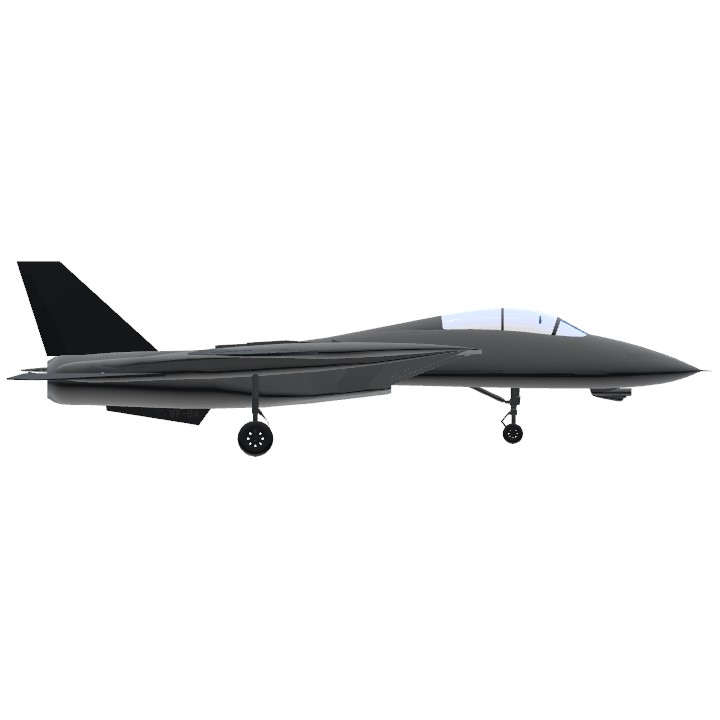
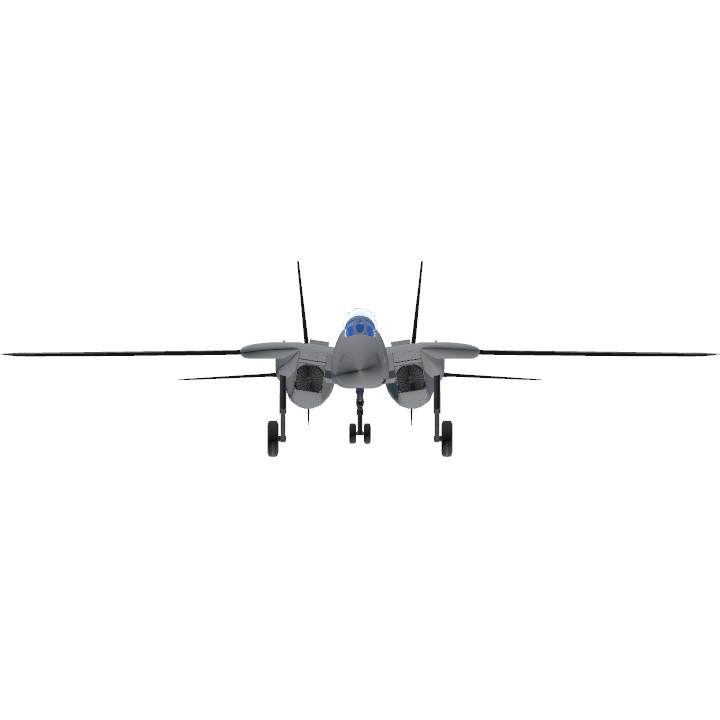
coulda addedwheel wells and a lot more detail, but its quite nice otherwise
@MrCOPTY not the cardboard one
@BaconEggs are you going to finish this?
gggg
@JacksEpicGamingYT u could try, can i see ur work? so i know if ur good enough?
@JacksEpicGamingYT i dont do color schemes, i tried and i cant barely, and the f14 is one of those planes i stay awya from cus of the LG
my wings were GGGGGOOOOONNNNNEEEEE!!!!!!!!
LOL
@PantheraShojii magic
Really nice plane, flies well, good quality, and I love the stall shaking
WHENWILLTHISFOKUNGJETWILLBEDONE1!1!!1!11!
Those freaking nozzles LMAO how?!
@DeezDucks get funnyd
damn I was waiting for 69 and I missed it
This F-14 has an unexpected flight characteristic shared with the F-15, and it’s the fact you can fly with one wing missing(I am flying with both wings missing)
@SnoWFLakE0s ogey
While variables are nice, I would recommend keep them reasonable in order to keep code more portable.
Personally I would only recommend it for logic processing uses which default FT cannot handle, or when you have long repeated segments.
@BaconEggs
lol.
Good info btw.
VFA-CDB
‘Cardboard Cutouts/recycled amazon boxes’
motto: ‘in cardboard we fly’
@GuyFolk yea lol i tried to not straight up copy what the guy says
flies suprisingly well without wings
Afterburner is so cool, not to mention the technique on the nozzle, wing bending, so much to learn from this.
Duct tape would go well with this unusual ascetics.
Also, I think the description remind me of this video.
Is it waterproof
Timcat
I looked under the Intake and i saw a masterpiece
@BaconEggs k